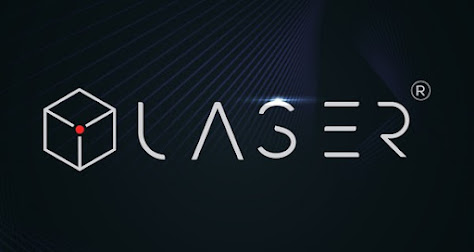Artificial Intelligence
AI: Everything You Need To Know
Artificial Intelligence, simply known as AI is the simulation
of human intelligence by means of machines. The term "artificial
intelligence" refers to a wide branch of computer science involved in
creating machines that are able to perform tasks that require human
intelligence.
In this article, we aim to shed some light on this exciting
technology and its great innovative possibilities for the future.
Artificial Intelligence is an area of computer science that emphasizes the creation of intelligent machines that work and react like humans. Through specially designed algorithms, these machines can understand, analyze and learn. This special field of computer science aims to characterize high-level reasoning as well as learning and problem-solving. The meaning is basically that computers can think for themselves and can be able to respond intelligently. The ultimate goal behind this concept is to provide the machines with capabilities such as learning from experience, thinking abstractly, reasoning, problem-solving, and communication in natural language.
AI is an ever-growing topic in
today's world, as it is a cross between science fiction and reality. Artificial intelligence technology has
fascinated the public for decades. With its roots in science fiction, the
creation of machines that can act like humans seems to hold unlimited
possibilities for the future of mankind It has all the makings of science
fiction come to life, what with the idea that we can create machines that can
be as intelligent and complex as humans themselves. The idea of creating
machines that can act like humans gives children and adults alike a sense of
how this might benefit mankind in the future. Artificial intelligence is the
process of simulating a human brain on a computer. The ability of AI to develop
thinking and reasoning ability could be traced all the way back to the 1950s
when computer pioneers like Donald Michie and Alan Turing started their very
first attempts to create computers that can think as humans do.
Unsurprisingly, the creations of AI machines started with the ability to think as humans do. The first AI simulation resulted in ELIZA, a computer program that was able to conduct a conversation via simple commands and replies mimicking human behavior and understanding. Artificial intelligence is rapidly developing, but there are still many things that these machines cannot do. Even though this technology has yet to reach its full potential, it is not too early to consider how AI can be utilized by today's businesses of any shape and size.
Starting from the 1950s and continuing on to the present time, the development of Artificial Intelligence (AI) has proven to be an exciting area for both computer experts and everyday folks who are just fascinated by what AI can do. While AI is mainly used in programming businesses and in laboratories, there are also a lot of products that you can use that will have AI incorporated in them. AI has been a concept in design for many decades now, but things have changed. We have the power of deep learning and neural networks, computer simulations, and predictive models. AI can now make some interesting predictions that we could not even think of in the past.
Can you imagine where we will be in the coming years as AI
evolves? Well, that depends on how well we understand the current state of this
technology and its capabilities.
Let's look at how AI is shaping the world we live in today as
well as how it is considered to influence our future through its application in
different industries.
Artificial intelligence is a part of life when we think about
our day-to-day activities. Siri and
Alexa are great examples of artificial intelligence! You might speak to your
cell phone and ask it to call a friend. Using voice recognition and artificial
intelligence, you commonly interact with your cell phone. These days, most
phones have voice recognition and AI software and the ability to recognize
people's voices, understand the words they say, and make decisions. We can
program computers to think creatively, make decisions, do mathematics, and
eventually recognize patterns that humans cannot. The more data we gather, the
easier it is to program them. AI is a term used for a machine's ability to
learn and act on its own. It has now become an industry, with many companies
offering their unique solution to the ever-growing problem of mass data
collection. For example, Facebook uses artificial intelligence to analyze
users' activity, which allows them to deliver the most relevant advertisements.
Modern examples of AI include computer vision, speech recognition, and virtual
assistants like Siri, Alexa, and Cortana.
AI is rapidly moving
to change medical device technology. Medical cobots in aesthetic treatments are
one of the examples of AI used by medical technology.
AI in Everyday Life
• Online
shopping and advertising
• Web search
• Digital
personal assistance
• Machine
translations
• Smart homes,
cities, and infrastructure
• Cars
• Cybersecurity
• Artificial
intelligence against Covid-19
• Fight
disinformation
Other examples of Artificial Intelligence use:
AI is set to transform practically all aspects of life and
the economy.
• Health
• Transport
• Manufacturing
• Food and
farming
• Public
administration and services
Types of Artificial Intelligence
We can classify artificial intelligence into 4 distinct types.
• Reactive
Machines: Has no memory, only responds to different stimuli
• Limited
Memory: Uses memory to learn and improve its responses
• Theory of
Mind: Understands the need of other intelligent entities
• Self – Aware:
Has human-like intelligence and self-awareness
Reactive Machines
Artificial neural network systems are the oldest forms of AI
and have extremely limited capacity. They emulate the human brain’s ability to
respond to different kinds of stimuli by making connections between inputs and
desired outputs, but they do not have memory-based functionality, which means
they cannot use previously gained experiences to inform their present actions.
They are solely capable of automatically responding in a limited set or
combination of inputs.
Limited Memory
Limited memory AI, which is based on learning from historical
data. Almost all present-day AI applications—from virtual assistants to
self-driving cars—are based on limited memory AI. This AI can learn from historical data and
apply it to future situations. Memory-based learning machines are devices that
are capable of not only reacting to inputs but also learning from past data.
This allows them to perform tasks with accuracy and make decisions based on
experience. For example, Google Translate uses a limited memory machine to
translate between languages.
Theory of Mind
Artificial Intelligence programs have already been developed
that exhibit many levels of intelligence. The highest level of artificial
intelligence so far achieved is known as the theory of mind AI or artificial
emotional intelligence. Theory of mind AI can perceive the needs, emotions,
beliefs, and thought processes of the entities it interacts with. Right now the
AI industry is focused on creating machines that are capable of this kind of
perception. This perception will allow machines to understand humans better,
which will make machines even more effective in their intended functions.
Self-aware
The final phase of AI development is one in which a computer
has developed an emotional and conscious life of its own. Creating this type of
artificial intelligence is the ultimate goal of all AI research and at this
point in time seems decades, if not centuries away from materializing. This
type of artificial intelligence would be able to interact with others on an
emotional level and potentially have emotions, desires, needs, and beliefs of
its own. This type of AI is what most people fear will someday be our doom.
Are there other AI Types?
There are other three types of AI. The alternate system of classification that is more generally used in tech parlance is the classification of the technology into:
• Artificial
Narrow Intelligence (ANI)
• Artificial
General Intelligence (AGI)
• Artificial
Superintelligence (ASI)
Artificial Narrow
Intelligence (ANI)
Artificial narrow intelligence refers to AI systems that can only perform a specific task autonomously using human-like capabilities. These machines can do nothing more than what they are programmed to do, and thus have a very limited or narrow range of competencies. This includes all reactive, limited memory, and machine learning AI. According to the above system of classification, this would include even the most complex AI that uses deep learning.
Artificial General Intelligence (AGI)
Artificial General Intelligence is a system that can learn,
understand, and perceive as human beings do. These systems will be able to
independently build multiple competencies and make connections across domains.
This will allow AI systems to be just as capable as humans in the same way we
are.
Artificial
Superintelligence (ASI)
Artificial Superintelligence (ASI) will probably be the most powerful form of intelligence on earth because it will have the ability to replicate the multi-faceted intelligence of human beings, remember more information, process data, and make decisions faster. The development of ASI will lead to a scenario most popularly referred to as the singularity - where machines become smarter than humans. It seems appealing that we could create such powerful machines, but these machines may also threaten our existence or at least our way of life.
Artificial Intelligence revolutionized every area of industry and opened unprecedented prospects and possibilities. There is a high demand in every industry for AI capabilities, including those that can automate, learn, provide legal assistance, warn clients of risks, and conduct research.
AI has the power to do what humans can't do!





Comments
Post a Comment